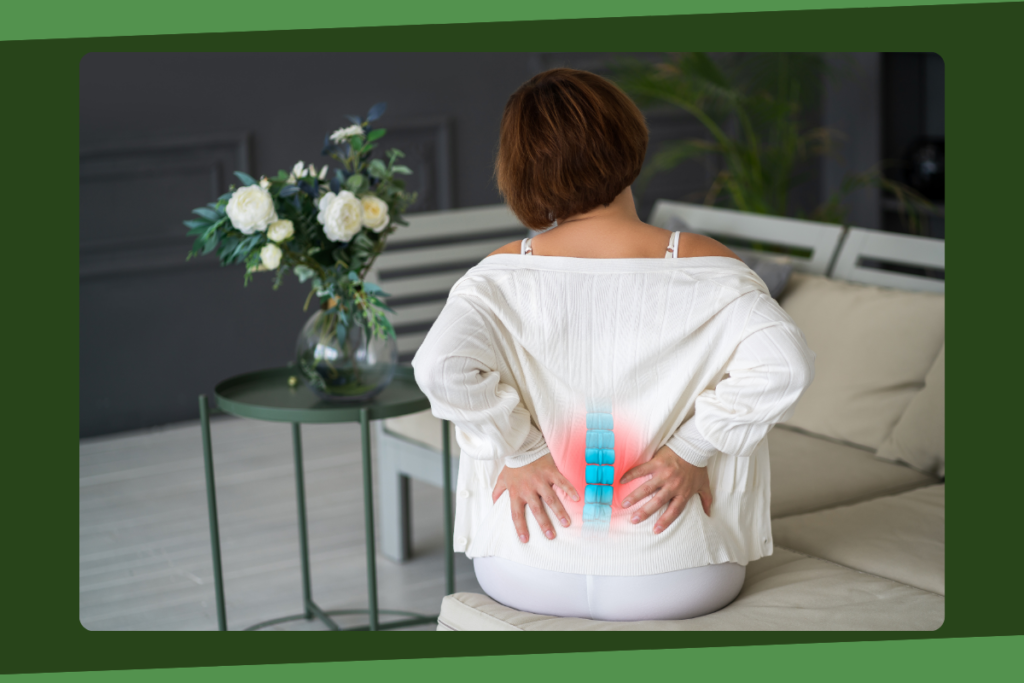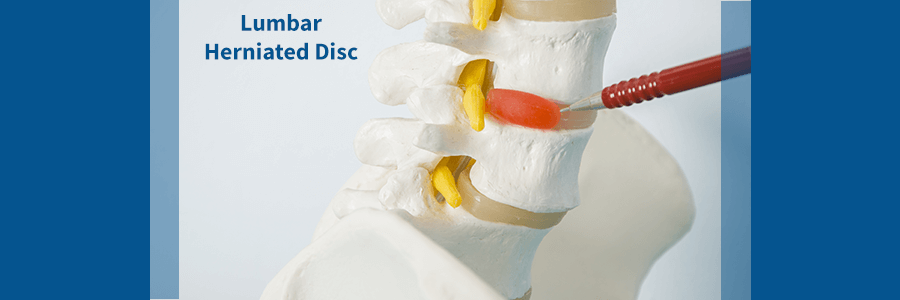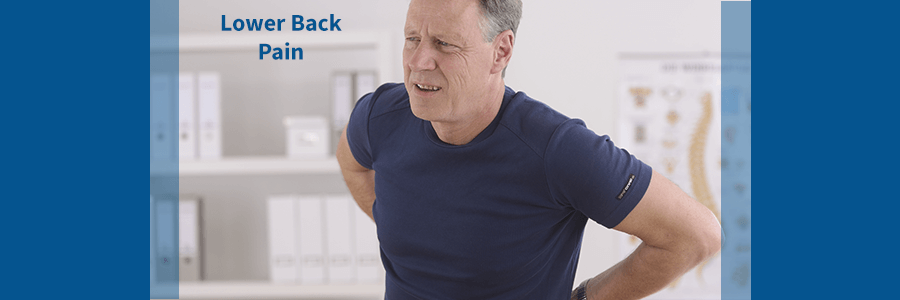8 Herniated Disc Symptoms You Should Know

Key Takeaways
- Herniated discs occur when the soft material inside a spinal disc pushes out, potentially compressing nearby nerves and causing pain or discomfort.
- Common herniated disc symptoms include localized back pain, numbness or tingling in the limbs, and muscle weakness.
- The severity of symptoms depends on the location of the herniated disc and the extent of nerve involvement, with some cases causing radiating pain down the legs or arms.
- Early recognition of herniated disc symptoms is essential for seeking timely treatment to avoid further complications and improve recovery outcomes.
The spine plays a crucial role in supporting your body and allowing movement. Discs between each vertebra act as shock absorbers, protecting your spine and making it more flexible. Sometimes, these discs rupture because of injury, disease, or everyday activities, causing pain and other uncomfortable symptoms.
If you think you have a herniated disc, then it’s best to understand the spine and common herniated disc symptoms. An untreated herniated disc can be a significant source of pain and debilitation as it affects the spinal cord or other vital nerves.

Understanding Your Spine & Intervertebral Discs
Your spine runs from the base of your skull to the pelvis. A series of bones, known as vertebrae, are stacked upon each other. The spine has three central regions:
- Cervical Spine: A series of seven vertebrae that start at the base of the skull. These bones allow for support and movement of the neck.
- Thoracic Spine: Twelve vertebrae that connect the end of the neck region to the middle back. This spine area attaches to the ribs and protects many of your major organs.
- Lumbar Spine: Five or six large vertebrae that connect the thoracic spine to the pelvis. This lower back area of the spine supports the bulk of the body’s weight.
In between each vertebra lies a circular structure known as an intervertebral disc. These discs cushion each bone and make the spine more flexible. Two main components contribute to the structure of our discs. The outer component is a thick ring of strong cartilage known as the annulus fibrosus. This rubbery ring encircles a soft, gel-like structure known as the nucleus pulposus.
Since these discs support the body and allow movement, they tend to become easily injured. Sometimes, this is due to normal wear and tear during everyday activities. In other cases, trauma to the spine, such as a fall or car accident, can be to blame. Certain lifestyle choices like smoking or not exercising may also make the discs more prone to injury.
What is a Herniated Disc?
Sometimes considered a ruptured disc, this condition occurs when the disc’s outer layer weakens and dries out. Like any area of the body, our discs suffer from the effects of aging, especially if we are not mindful of ways to protect our spine.
As the disc loses shape, a slight bulge may form near the injured area of the annulus fibrosus. Eventually, the inner nucleus pulposus breaks through the walls of the outer disc and moves into the spinal canal. This can create nerve compression, as well as lead to painful or debilitating symptoms.
8 Herniated Disc Symptoms You Should Know
When a disc ruptures and puts pressure on a nerve, it can cause various symptoms. Disc discs are often damaged in the neck or lower back because of the extra movement in these areas. If you think you may have a herniated disc, then check for these symptoms:
Lower Back, Neck, or Chest Pain
Since the disc presses against a nearby nerve, pain is one of the most common symptoms of a ruptured disc. Depending on how the nerve is affected, this can range from a minor irritation to excruciating discomfort. Sometimes the pain subsides in a couple months. For some, however, the agony can become more chronic.
Pain generally originates in the area of the herniated disc. For example, expect discomfort in the middle back or chest if you have a thoracic herniated disc. Sometimes the pain travels to other body areas due to local nerve damage and inflammation.

Cervical Radiculopathy
A great example of traveling pain occurs if you have a cervical herniated disc. When one or more neck nerves become pinched or function improperly, you may experience various symptoms. Pain can begin in one area of the body, such as the shoulder, and travel along the arm to the fingers. This condition is known as cervical radiculopathy.
While some with a cervical herniated disc experience dull pain, others may describe their pain as sharp, burning, or stabbing. In addition, certain neck movements, such as bending the neck backward, can increase pain.
Lumbar Radiculopathy
When you are suffering from a lumbar herniated disc, you may experience pain very similar to that of a pinched nerve in the neck. This traveling pain can start at the back of the leg and extend down to the foot. This condition is also known as sciatica.
Those with a lumbar herniated disc often describe a deep, nearly constant pain that worsens while sitting or walking.
Paresthesia
In addition to pain, you may experience other sensations, such as numbness and tingling, in the area where the disc is damaged. This symptom is known as paresthesia. These sensations may also travel to other extremities of the body, including the arms and legs.
Muscle Weakness
A herniated disc puts pressure on the spinal cord or nerve roots. This pressure makes it harder for the nerves to carry signals to and from the brain. As a result, the muscles may feel unresponsive and weak. If a nerve root becomes inflamed, fine or gross motor control can be lost.
If the lumbar spine is affected, muscle weakness may also result in a condition known as foot drop. This occurs when you have difficulty lifting the foot while standing or walking. Conversely, a herniated disc in the neck can cause muscle weakness in the arm or hand.

Myelopathy
When a herniated disc puts pressure on the spinal cord, it can affect your walking, grip strength, and other essential functions. This is a severe, although uncommon, result of a herniated disc. If you notice difficulties with balance, fine motor activities like buttoning your clothes, or even a change in your handwriting, you should seek immediate help.
Myelopathy can lead to permanent paralysis and even death. In many cases, surgery from a qualified orthopedic surgeon is necessary.
Incontinence
Another severe symptom of a herniated disc involves disrupting your body’s ability to remove waste. If you stop feeling the urge to urinate have a bowel movement, or cannot control your bodily functions, get help immediately. Although this is a rare condition, it can lead to permanent damage.
Saddle Anesthesia
If you’re experiencing a sudden or gradual onset of symptoms in the groin, thighs, buttocks, or genitals, it could be a result of cauda equina syndrome. This condition’s symptoms may include numbness, stabbing pains, or loss of sensation in the area. This issue often requires immediate surgery to decompress the affected nerves.
Getting Help for Your Herniated Disc
As you can see, symptoms of a herniated disc often vary. While some cause only minor discomfort, others can lead to paralysis or even death. If you suffer from chronic pain or some the more serious symptoms of a herniated disc, seeking the guidance of an orthopedic surgeon may be the best decision to get your life back.
At New York City Spine, Dr. Daveed Frazier and his team of spine experts are ready to hear your symptoms, concerns, and treatment goals. We specialize in using the most advanced minimally invasive options for reducing pain and restoring function to an affected spine area. In many cases, we can treat issues like herniated discs without surgery.
If you require herniated disc surgery, our experienced surgeons will use the latest technology to reduce scarring, pain, and recovery times. We make sure your discectomy or other minimally invasive procedure is the best choice for lasting pain relief.
Don’t delay scheduling an appointment with the New York City Spine team. We are ready to diagnose and treat any of your spinal or orthopedic issues so you can once again enjoy a pain-free life.
FAQs
1. What causes a herniated disc?
A herniated disc can be caused by wear and tear over time, sudden heavy lifting, or trauma that forces the disc to slip out of place, pressing against surrounding nerves.
2. What are the common symptoms of a herniated disc?
Common symptoms include back pain, numbness or tingling in the arms or legs, muscle weakness, and pain that radiates down the limbs, especially in the lower back and legs.
3. How is a herniated disc treated?
Treatment options for a herniated disc may include rest, physical therapy, pain relief medications, or in more severe cases, surgery. The approach depends on the severity of symptoms and the impact on daily functioning.
